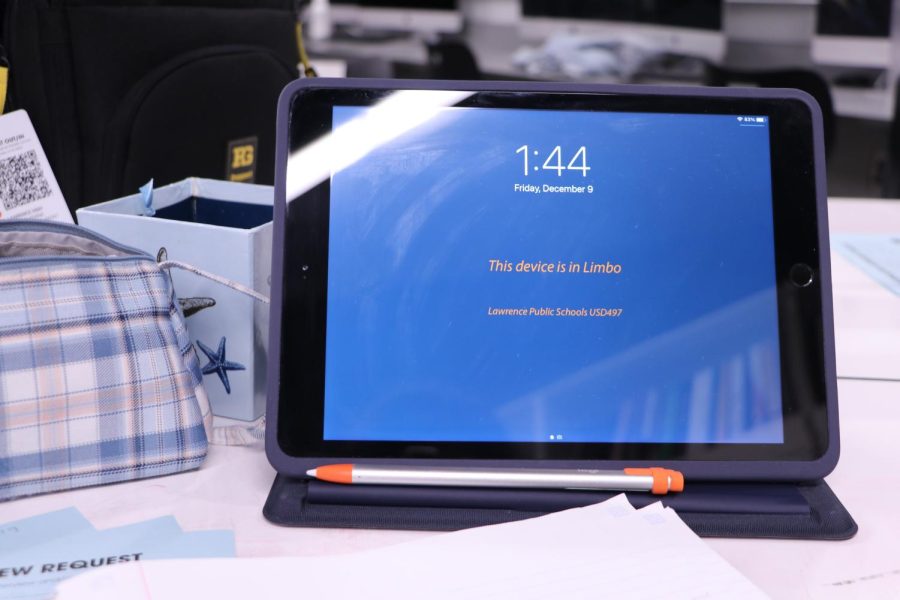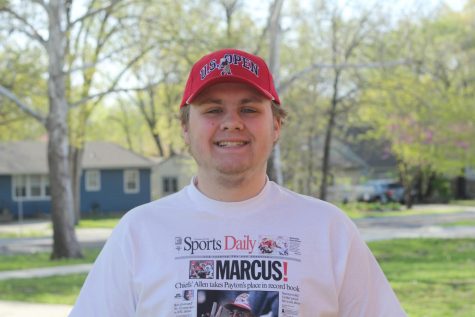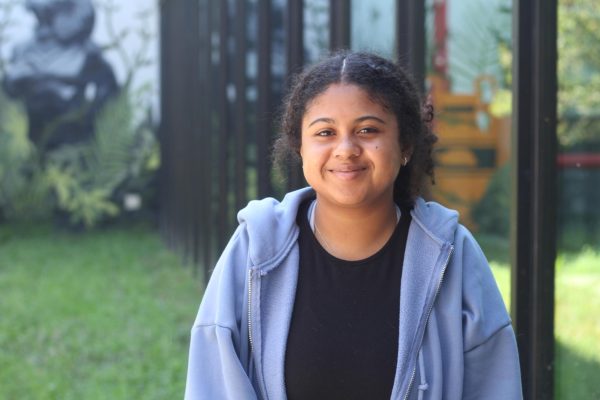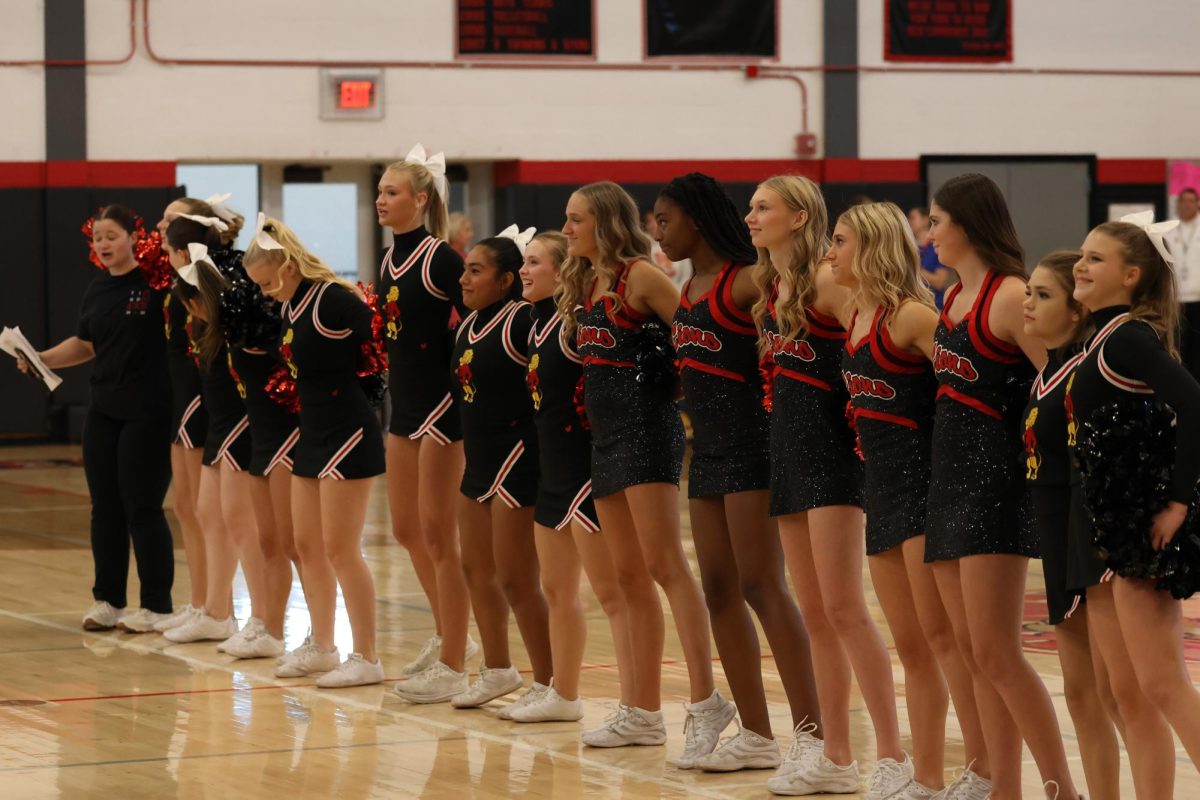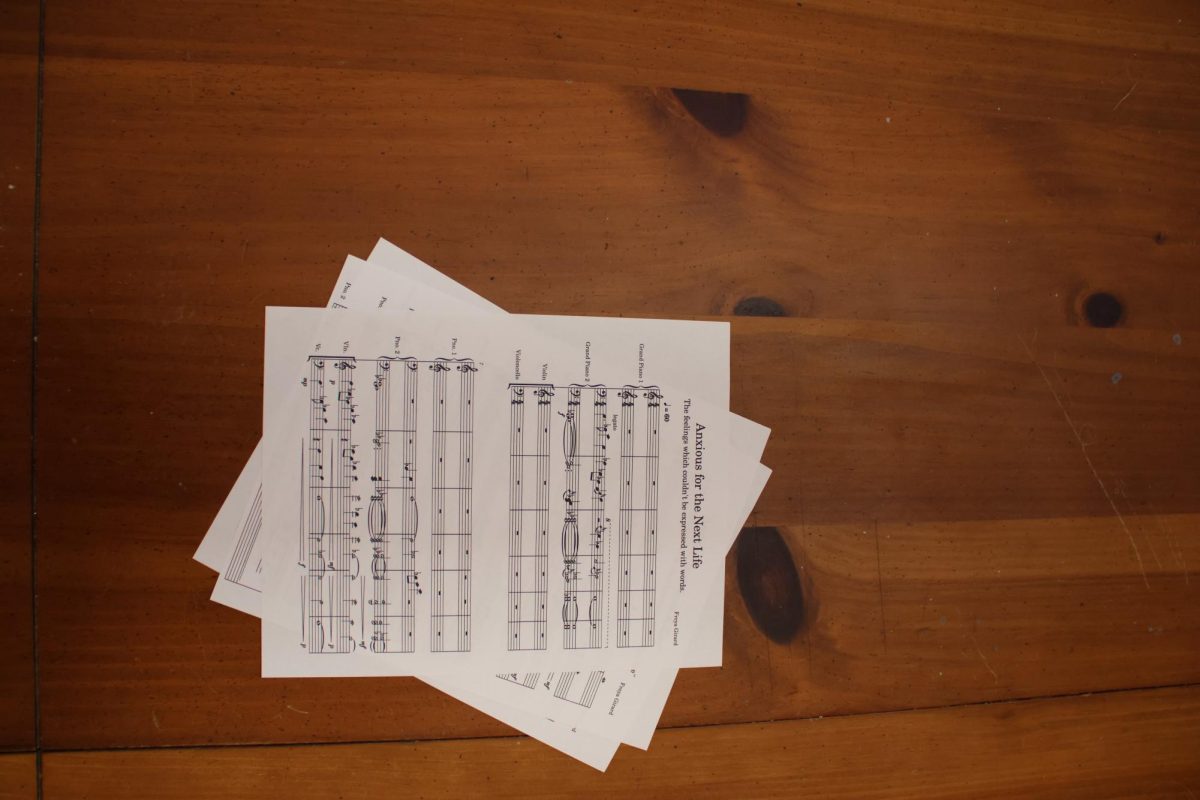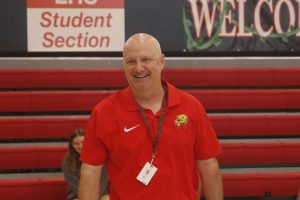Students, faculty react to possible device change from MacBook to iPad
A pilot iPad reading “This device is in Limbo” sits on a desk.
December 9, 2022
Over the next three years, USD 497 could save between $2 and $4 million if they switch from MacBooks to iPads at the high school level.
In the wake of continued budget deficits and cuts, USD 497 is reviewing its student technology lease. The options are straightforward at first: renew a four-year lease and continue using MacBooks at the high school level or switch to iPads.
However, students and teachers alike have raised an eyebrow at the potential shift. Since 2017, high schoolers at LPS have used one-to-one MacBook Airs, while middle school students used iPads.
“To be brutally honest, iPads aren’t good for school,” freshman Liam Pleskac said.
Pleskac and other freshmen in Rachelle Christie’s Advanced English 9 class received iPads halfway through the semester as a part of a piloting program by the district.
“During the week of October 10, we provided each participant an iPad, keyboard, mouse and case,” David Vignery, USD 497’s Director of Technology, told The Budget in an email. “We plan to collect the iPads at the end of the semester and interview participating students and staff about their experiences, including any perceived advantages and disadvantages of using each device.”
Many other students who participated in the pilot program expressed a similar sentiment to Pleskac.
“We already know how to use computers, which is college-ready and career-ready. I feel like you can’t be as prepared on an iPad,” freshman Hailey Bills said. “I tried to use it as much as possible but it’s just so annoying to type on. The keyboard wasn’t very functional.”
In addition to general annoyance, teachers have expressed concern for career and technical education classes, which use multiple computer-exclusive programs. School board member GR Gordon-Ross, who spoke to Valerie Schrag’s History 128 class this morning, said there wasn’t a definitive plan for CTE programs, but teachers expect a renting or checkout process would be required to meet curriculum needs.
“It would be a devastating blow to the film program,” Zach Saltz, who teaches film and animation, said. “It would impair our ability to produce high-quality work, to broadcast, collaborate with other groups and live stream. It would essentially put us back to the time when we had to check out devices. And checking out devices presents risks of privilege and inequity.”
Most of the estimated savings are not from the difference in lease costs, but rather from repair costs being more manageable and the difference in hardware price.
According to Gordon-Ross, the district spent $270,000 on repair fees last year for MacBooks, an expense that sat at $30,000 just years prior.
“The main issue are the MacBook screens,” said librarian Kirsten Rusinak. “They’re made of glass rather than Plexiglas, and they’re super delicate. There’s definitely been a sharp increase in the amount of damaged devices, and most of the time, students don’t even know what caused the damage.”
Over the next three years, the district would save between $2 and $4 million, according to Gordon-Ross. However, the total savings would likely be less because the district would have to provide different devices for classes where iPads couldn’t handle the curriculum needs.
Any savings would free up spending from the capital outlay fund, which largely goes to building upkeep. It wouldn’t impact the general operating fund, which mostly goes to staff pay. The general fund has been strained in recent years, leading to $7 million in cuts last year, with roughly $9 million more expected in the next two years.
Vignery added that district administration would target January for a recommendation to the board in favor of either iPads or MacBooks.
Nuts and Bolts:
- iPads have improved in quality with a new chip made by Apple, but they lack the ability to use the same software programs as MacBooks
- iPads would save the district millions
- Teachers would be forced to reevaluate their lessons, how their classwork looks, activities and how they teach
- iPads won’t be received well by students (trust me)
- iPads could free up money to pay for capital improvement projects across the district, including roofing and asphalt projects that stand to cost millions
- Neither maintaining the status quo, nor continuing usage of MacBooks, would impact the general operating budget, meaning it wouldn’t prevent school closures or program cuts in the future
- However, several students said keeping MacBooks is important in helping them be college ready
Finn Lotton-Barker and Jackson Green contributed to this report



